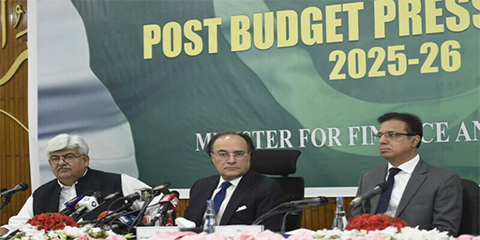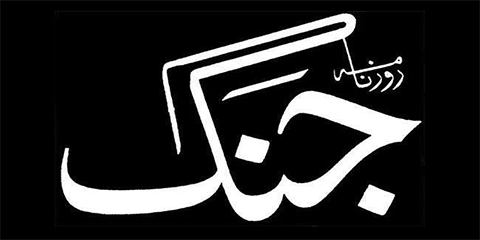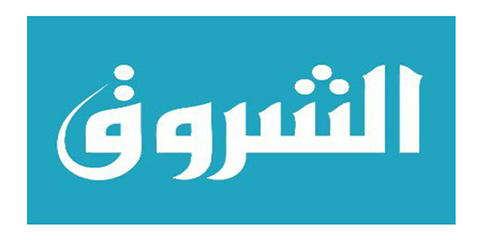JournalismPakistan.com | Published January 30, 2014 | Fakiha Hassan Rizvi
Join our WhatsApp channel
It is laudable that Pakistan is keeping pace with the cyber world. In the recent past (year 2013), Pakistan crossed 10 million Facebook users (half of them between the ages of 18-24). Of these users, 2.8 million log in to Facebook via mobile phone.
Moreover, Pakistan became the 7th most popular country on the world's largest social networking website. There is also a large amount of fake accounts contributing to the pool of Facebook users and cyber stalkers are among them as well.
What an irksome feeling it is when we get to know that a stranger in the cyber world is misusing or manipulating the content that we shared through the Internet? Equally embarrassing is the situation when people start knowing you for what you aren't.
Cyber stalking is the digital equivalent of verbal onslaught, mudslinging and the misuse of personal information to harass or defame real world individuals, deliberately. The recent and prominent examples in Pakistan are that of cricketer Saeed Ajmal and the Army Chief, Gen. Raheel Sharif. Both of them have fake fan pages and Facebook accounts, which are being followed by a good number of Internet users.
A 13-year-old boy was abducted through Facebook in May 2013. The teenager was the son of a senior Customs official. He was kidnapped and kept in a town outside Karachi, while his family received calls demanding $508,000 in ransom.
It is an abysmal fact that an upward trajectory of cyber crimes is flourishing in Pakistan. There is a diversified presence of cyber crimes in the country, these include; cyber pornography, sale of illegal articles, online gambling, intellectual property crimes, email spoofing, cyber stalking, forgery, unauthorized access to computer systems/networks, theft of information contained in electronic form, virus attacks, Trojan attacks, Internet time theft, password cracking and financial cyber crimes (hacking of ATM card numbers and bank accounts).
In 2010, more than 312 cases were reported in different categories of cyber crimes in Pakistan and according to the latest statistics “cyber stalking” tops the list.
The Federal Investigation Agency (FIA) laments that most of the victims don't know where to report and another segment doesn't want to in order to avoid humiliation (especially in the case of girls). Therefore, there are a substantial number of cases that go unreported and unnoticed. The FIA also complains of “lack of awareness” on part of the Internet users and the absence of concrete laws relevant to “cyber stalking”.
The issue of legislation and promulgation of cyber laws in Pakistan is as new as the penetration of Internet in the country. Pakistan passed its first “IT crimes bill” in 2007 under the “Pakistan's Prevention of Electronic Crimes Ordinance”, section 13 (1) of the act deals with “cyber stalking”. This part is applicable to anyone who acts “with the intent to coerce, intimidate, or harass any person using computer, computer network, Internet, network site, electronic mail or any other similar means of communication to: (a) communicate obscene, vulgar, profane, lewd, lascivious , or indecent language, picture or image; (b) make any suggestion or proposal of an obscene nature; (c)threaten any illegal or immoral act; (d) take or distribute pictures or photographs of any person without his consent or knowledge; (e) display or distribute information in a manner that substantially increases the risk of harm or violence to any other person."
Section 13(2) stipulates that anyone convicted of cyber stalking shall be punished “with imprisonment of up to seven years, or with a fine of up to three hundred thousand rupees, or both. Moreover, if the victim of the cyber stalking is a minor, the term of imprisonment can be extended to 10 years, or a fine added of not less than one hundred thousand rupees, or both”. This act was lapsed in 2009 and the old Electronics Transaction Ordinance (ETO) was enacted in 2002. This regulation was not written specifically to address cyber crimes. The government has established the National Response Centre for Cyber Crimes (NRCC) under the Federal Investigation Agency to address cyber crime victims’ complaints.
A three-pronged strategy is required to counter the menace of cyber stalking in Pakistan. On part of the civil society, academic institutions, parents and teachers should educate their children about the necessary precautions that should be taken while using the Internet. IT experts and those who are seasoned in the field of Internet governance can form a pressure group to start a mass campaign against cyber stalking and cyber crimes. The government, which is already known for its notorious measures, muzzling the Internet (like blocking YouTube), should regulate and implement strict laws. The fact that Internet censorship remains unhampered, while cyber stalkers are free to continue their sinister motives is itself worrisome for a nation that is witnessing an accelerated rate of Internet penetration and usage.
(The writer is a student of Communication Studies at University of the Punjab and blogs at www.fakihahassanrizvi.wordpress.com. She Tweets at @Fakiha_Rizvi )

June 11, 2025: Pakistan celebrated a narrow win over Bangladesh, but beneath the jubilation lies a deeper crisis—from sidelined veterans to a collapsing domestic structure—signaling an urgent need for cricket reform.

June 11, 2025: Journalists walked out of the post-budget press conference in Islamabad to protest the absence of a technical briefing and the government's dismissive behavior, calling it unacceptable and intolerable.

May 31, 2025: Dr. Nauman Niaz has issued a defamation notice to Shoaib Akhtar over derogatory remarks made during a recent broadcast, reigniting a longstanding media feud between the two prominent figures in Pakistan.

May 30, 2025: The Human Rights Commission of Pakistan has demanded the full repeal of PECA, citing its vague language, coercive powers, and threats to free speech and digital rights in Pakistan.

May 30, 2025: The Pakistan Federal Union of Journalists (PFUJ) has condemned the murder of journalist Syed Mohammed Shah in Jacobabad, calling for urgent justice and improved safety for media professionals in Sindh.

May 26, 2025: In Rawalpindi, police allegedly side with Jang Group to block 66 reinstated employees from resuming work despite court orders, drawing sharp criticism from unions and press freedom advocates.

May 25, 2025: PFUJ condemns the Jang Group's decision to dismiss over 80 employees in Rawalpindi, calling it an 'economic massacre.' The union warns of nationwide protests if workers are not reinstated.

May 25, 2025: Daily Jang Rawalpindi has terminated over 80 employees, including female staff, despite multiple court rulings in their favor—raising concerns over labor rights violations and misuse of authority in Pakistani media.

May 19, 2025 PJS reports 219 Palestinian journalists killed in Israeli attacks since October 7, with 30 women among the victims. Over 430 were injured and 685 family members were killed. Read more on the systematic targeting of media in Gaza.

May 15, 2025 Discover the legacy of Samiullah Khan, Pakistan’s legendary "Flying Horse," whose breathtaking speed and artistry redefined hockey. From Olympic glory to World Cup triumphs, his story is one of myth, movement, and magic.

May 04, 2025 Algerian authorities suspend Echorouk News TV for 10 days after it used a racist slur against African migrants. ANIRA demands an apology, calling it a violation of human dignity.

May 04, 2025 NCHR and MMfD launch a journalism fellowship to train reporters on digital rights & gender inclusion in Pakistan. Supported by UNESCO, this initiative aims to bridge the gender digital divide. Apply by May 15, 2025!

April 23, 2025 Discover Dr. Nauman Niaz’s In A Different Realm: Story of Quadruple & Triple Centuries 1876–2025, a profound exploration of cricket's most monumental innings, blending historical analysis with poetic narrative.